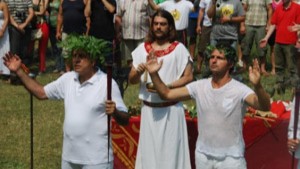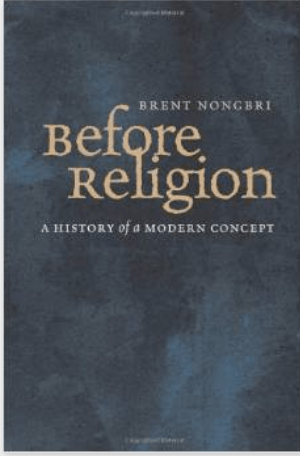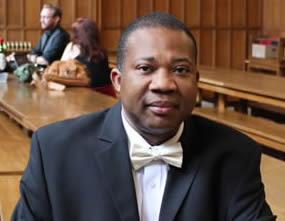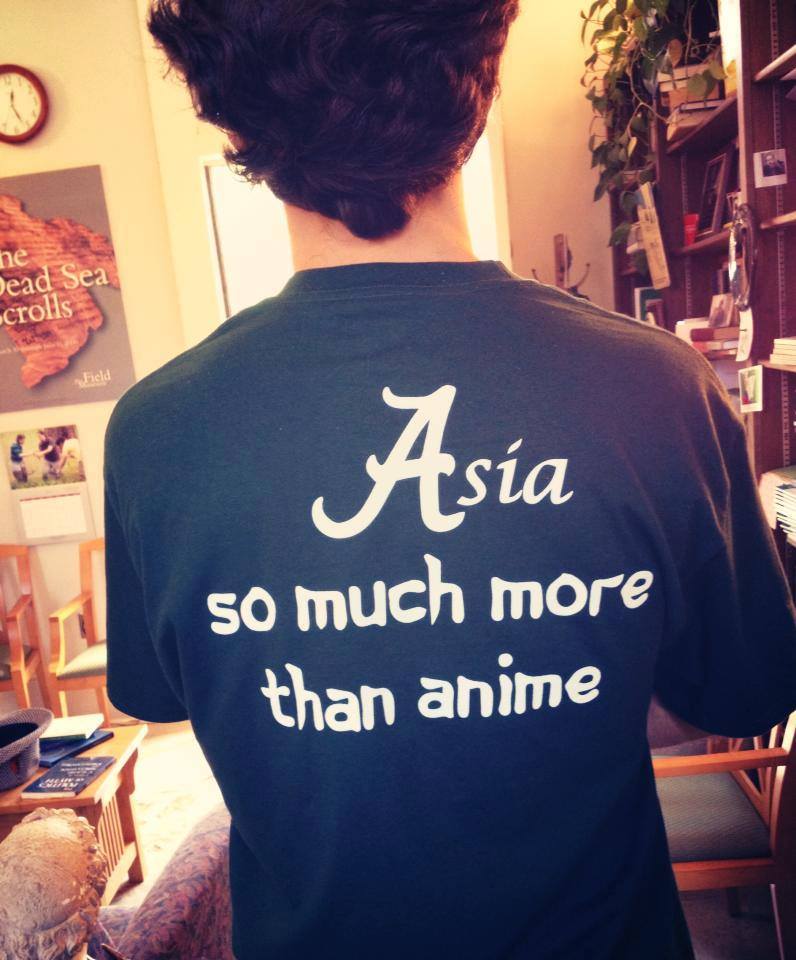Religious Studies Project Opportunities Digest – 19 August 2014

Calls for papers INSIDE OUT: Reflexivity and Methodology in Research with British Muslims and Muslims in Britain Research Network Meet September 10, 2014, 10 AM–5 PM Cardiff University, UK Calls for: delegates Deadline: N/A More information (pdf) Religion, Citizenship and Public Policy November 14–15, 2015 (Please note: The oppsdigest of August 5 incorrectly stated that the […]
The Work of Carlo Ginzburg as the Researcher and the Reimagined Researched

what I will be addressing in this response, which I believe has become an area of concern for both ethnographers and subjects, are the effects that the ‘researcher’ might have in organising and constructing the identity of the ‘researched’ in emic self-representations.
During the EASR/IAHR/NGG 2014 Conference on Religion and Pluralities of Knowledge at the University of Groningen, I had the privilege of attending Carlo Ginzburg’s presentation, followed by his interview with the Religious Studies Project.
Religion, threskeia (θρησκεία) and the Return of the Hellenes: On Brent Nongbri’s Before Religion

Nongbri’s work, as I see it, offers a very valuable tool not only in approaching and interpreting the ancient usage of terms such as religio and threskeia and their respective history but also how those ambiguous terms are adopted and used by modern people who long for those ancient practices that scholars label “religious” in order to establish claims that touch upon different matters
Before “Religion”: a History of a Modern Concept

Brent Nongbri talks to Jack Tsonis about his recent book, “Before Religion: a History of a Modern Concept”. Nongbri provides an overview of the history of “religion” as a concept in the English speaking world, highlighting that the seemingly “natural” or “obvious” definition of the term is actually highly specific to the modern West.
The Psychology of Prayer: An interview with Kevin Ladd

Ladd begins the interview by discussing what it means to pray. Perhaps most important, he explains how prayer is defined for research purposes, emphasizing that there is no essential definition, nor is one desirable. In taking care to uphold a scientific understanding of prayer, rather than a theologically apologetic one,…
Book Review – Food, Sex and Strangers (Graham Harvey)

May 2014 Book Reviews Podcast – see the podcast page for author information. In Food, Sex and Strangers Graham Harvey attempts to approach the study of religion from ‘elsewhere’, that is from angles appropriate to specific traditions rather than simply Western Protestantism. This, Harvey asserts will allow scholars to study religions as they are actually […]
Between the Lab and the Field: Xygalatas and the Science of Extreme Rituals

Breaking down the boundary between the research lab and the “field site” is becoming more common beyond the boundaries of religious studies and anthropology.
The research project of Dimitris Xygalatas is part of a growing trend in cognitive approaches to human sociality. This trend involves breaking down the boundary between the lab and the field; sometimes this involves bringing the field into the lab—an approach not uncommon to many social psychologists
Afe Adogame

Dr Afe Adogame is Senior Lecturer in World Christianity & Religious Studies at the University of Edinburgh’s School of Divinity. He holds a PhD in the History of Religions from the University of Bayreuth in Germany, where he served as a Teaching & Senior Research Fellow before joining the University of Edinburgh in 2005. His broad research interests […]
Demons, Exoticism, and the Academy

demons and spiritual warfare aren’t something that snake handlers invented just yesterday, it is a major thread woven through the entire history of Christianity, and one that continues to be woven through it today.
Something that strikes me about contemporary spiritual warfare is how it’s not so radically different thematically in its interests and its languages than a lot of contemporary American religion.
Religious Studies Project Opportunities Digest – 1 April 2014

Welcome to this week’s opportunities digest! RSP is not responsible for any of the content presented below. If you have questions regarding any of the opportunities listed, please contact the respective organizers directly. If you have material you would like to see in next week’s digest, or at some point in the future, please send an e-mail to oppsdigest@religiousstudiesproject.com If […]
The Collaborative Experience of Religion and Health Research

I am beginning to worry that clergy feeling the need to conduct their own research to prove their value in healthcare settings may be a sign that the faithful are starting to identify with (or at least play by the rules of) their scientific captors.
A Jew, Muslim, Christian, and non-believer were all in the same room for the same reason: Where were they? They were at Duke University attending Dr. Harold Koenig’s summer workshop on conducting research in religion and health this past summer.
“Would You Still Call Yourself an Asianist?”

Over the course of Ramey’s career he has gradually and smoothly made a significant shift. Of course he still studies material relevant to his earlier training, but a shift in research focus from inter-religious cooperation to diaspora religion, eventually studying south Asian communities in the U.S.
Habermas and the Problem with the ‘Problem’ of Religion in Public Discourse

The starting assumption is that religious people will be fundamentally unable to speak to those who don’t share their faith. But why start with the assumption that translation will be a problem?
Living in a country where you don’t know the language means you have a great excuse for not talking to Jehovah’s Witnesses.
To be completely honest, I actually did understand the two Witnesses when they came to my door.
Habermas, Religion and the Post-Secular

Habermas mostly ignored religion, contending that it was not rational enough to be included in public debate. But over the past decade, he has begun to reexamine religion in light of its persistence in the modern world, calling this a turn toward post-secular society. He argues that religion deserves a place in public debate, …
An Outline of Norenzayan’s ‘Big Gods’

When belief in God was distilled into belief in a mean God (i.e., vengeful, and punishing) versus belief in a nice God (i.e., compassionate and forgiving), participants endorsing a mean-God concept were less likely to cheat relative to nice-God supporters.
In his book Big Gods: How Religion Transformed Cooperation and Conflict, Dr. Ara Norenzayan addresses two “puzzles” about human existence. First, how were large-scale societies able to develop?
